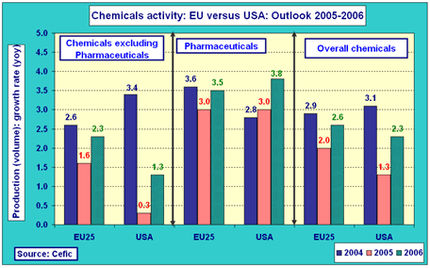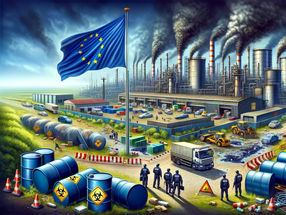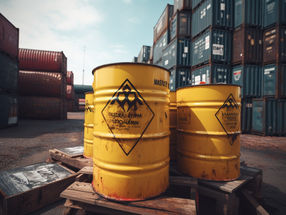Former US ambassador warns of threat to REACH
The former US Ambassador to the European Union, Stuart Eizenstat, has warned of the "chilling signal" for EU-US trade if political activists are allowed to undermine European chemical legislation, after a green think-tank proposed that a range of fire safety products should be banned under EU law despite having passed exhaustive European risk assessments.
Writing in European Voice, The Economist Group's weekly newspaper about EU Affairs, Eizenstat warns that the long-awaited REACH Directive could be compromised before it has even been given a chance to succeed by a separate decision now pending under the so-called RoHS Directive.
"The shared EU-US goal of barrier-free transatlantic trade risks being undermined by regulatory decisions that increasingly seem divorced from sound scientific assessments," he writes.
Eizenstat argues that a central component of governmental efforts to enhance transatlantic trade has been the implementation of REACH, which would provide consistent and predictable regulatory treatment of thousands of chemicals used in products throughout the European Union.
This is also essential to industry across the Atlantic, allowing US companies to avoid needlessly producing two different products and conduct two sets of duplicative tests because they face two sets of standards.
Eizenstat cites the example of brominated flame retardants, chemicals found in furniture, fabrics, and electronics, which, he says are vital for keeping us safe from fire. "Without flame retardants, many more Europeans would be injured or perish each year in fires, along with substantial additional property losses and environmental damage."
He continues: "Brominated flame retardants are a perfect example of the risk-benefit balance, based on scientific assessments, that REACH and the RoHS Directive were designed to resolve. Flame retardants are in furniture, fabrics, and electronics, and they are vital to preventing human injury and property destruction from fires. In airplanes, for example, flame retardants increase the safety margin in the case of a catastrophe by increasing the available evacuation time. Indeed, flame retardants are essential to meeting many countries' fire safety and consumer products safety regulations and standards".
"Through scientific assessments, regulators can balance risks from the use of flame retardants, if any, and the added public safety benefit from fire suppression. Because the decision-making process can often become technical - examining the risks inherent in specific chemical applications, the substitutes available, and the efficacy of the substitutes - these decisions are best left to scientists rather than interest group pressure."
Eizenstat, who acts as an advisor to the brominated flame retardant industry, is scathing of a recent study, carried out by the Oko Institut for the European Commission, which lists about 46 chemical compounds - including several flame retardants that have been targeted by activists - to be considered for a ban under the old RoHS Directive - despite the new REACH Directive coming into force.
Extraordinarily, he says, many of these chemicals have already satisfactorily passed exhaustive EU risk assessments, conducted by the EU's scientific experts, which specifically concluded that the products are safe to human health and the environment.
The consultants' report, he says, sends a chilling signal to the marketplace. "While it is an initial draft and the Öko Institut may well narrow the list, the message has nonetheless been delivered that scientific assessments are at risk of being ignored. If this proposal is allowed to stand, these chemicals could be banned, contrary to scientific assessments and even before REACH has had an opportunity to evaluate the relative risks and benefits."
He concludes by saying that this throws into doubt the EU's commitment to sound regulatory processes, based on scientific assessments, transparency, and procedural rights - and that it would take the transatlantic relationship back to arbitrary decision-making, opaque process, and inconsistent regulations.
"Banning products that are demonstrably not hazardous is exactly the kind of politicized regulation, arbitrary decision-making, opaque process, and inconsistent regulation that REACH was designed to avoid. REACH should be allowed to go forward without political influences disconnected from sound science-based regulatory decisions," Eizenstat says.
Organizations
Other news from the department politics & laws

Get the chemical industry in your inbox
By submitting this form you agree that LUMITOS AG will send you the newsletter(s) selected above by email. Your data will not be passed on to third parties. Your data will be stored and processed in accordance with our data protection regulations. LUMITOS may contact you by email for the purpose of advertising or market and opinion surveys. You can revoke your consent at any time without giving reasons to LUMITOS AG, Ernst-Augustin-Str. 2, 12489 Berlin, Germany or by e-mail at revoke@lumitos.com with effect for the future. In addition, each email contains a link to unsubscribe from the corresponding newsletter.






























































